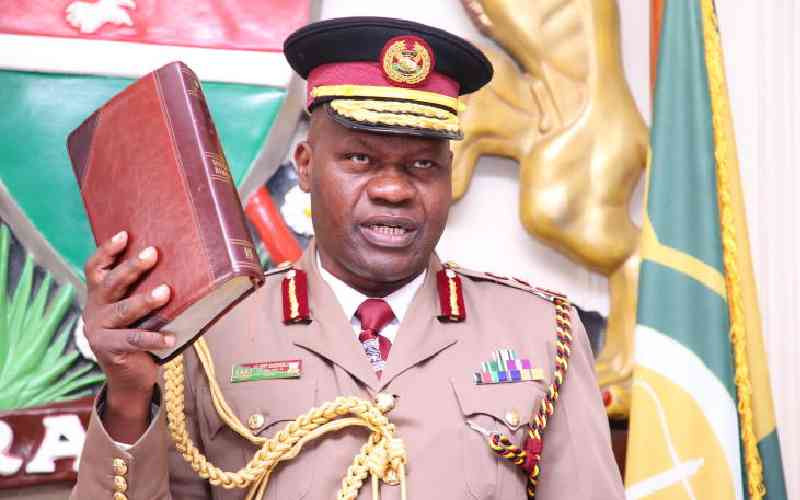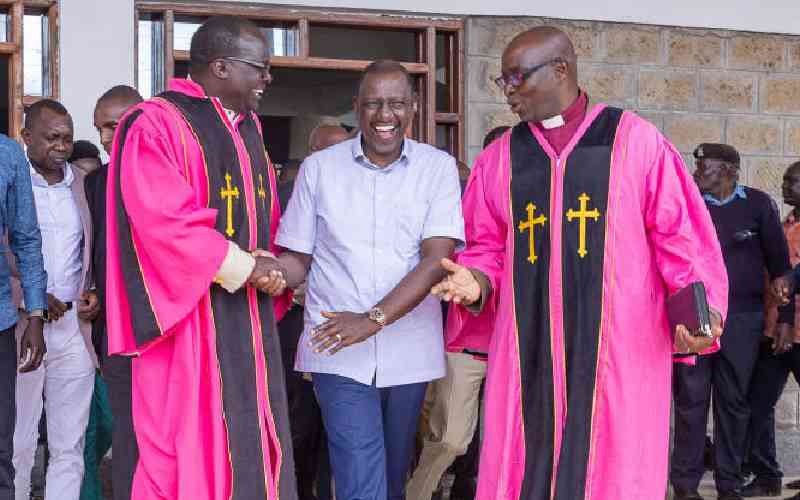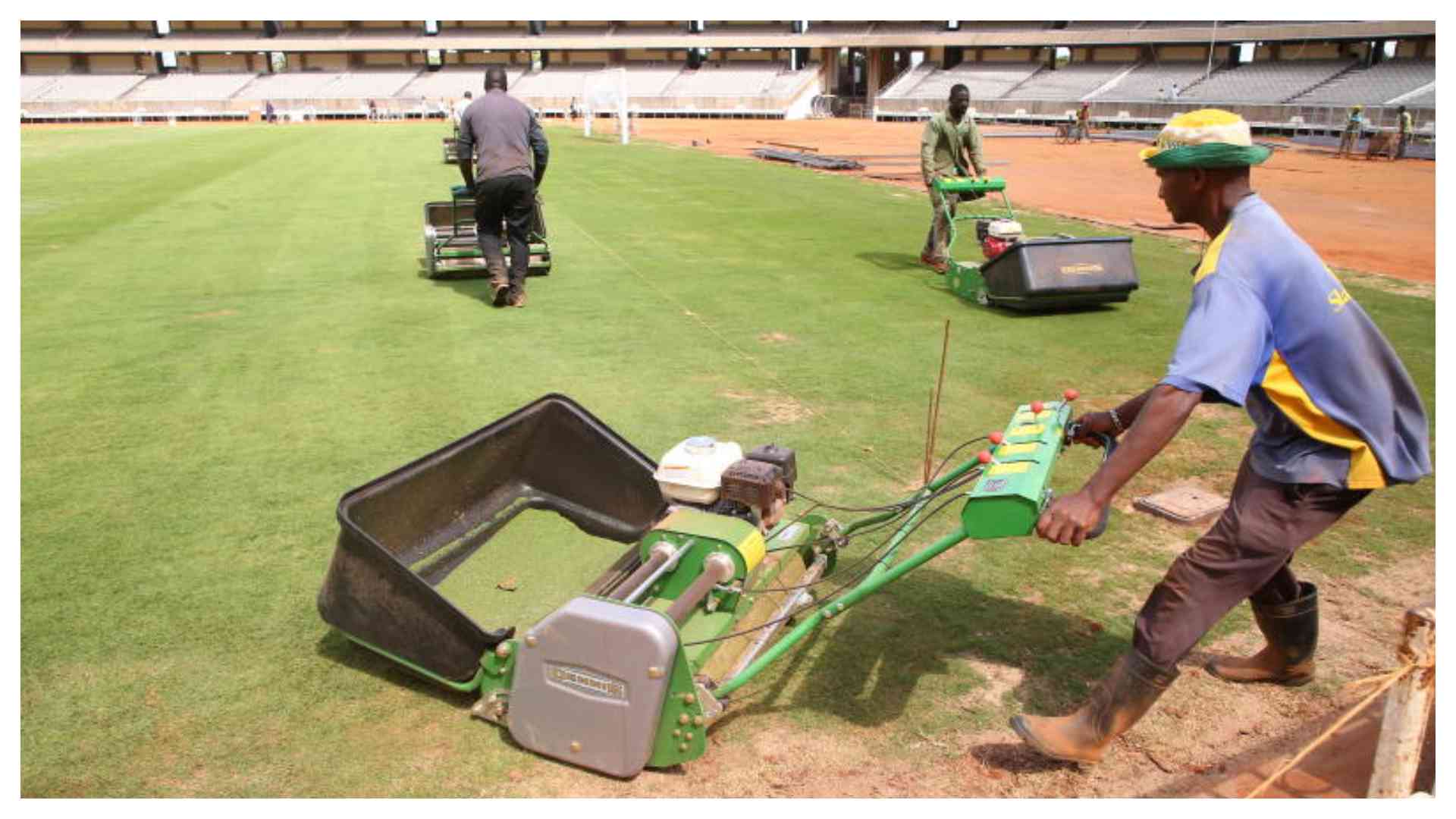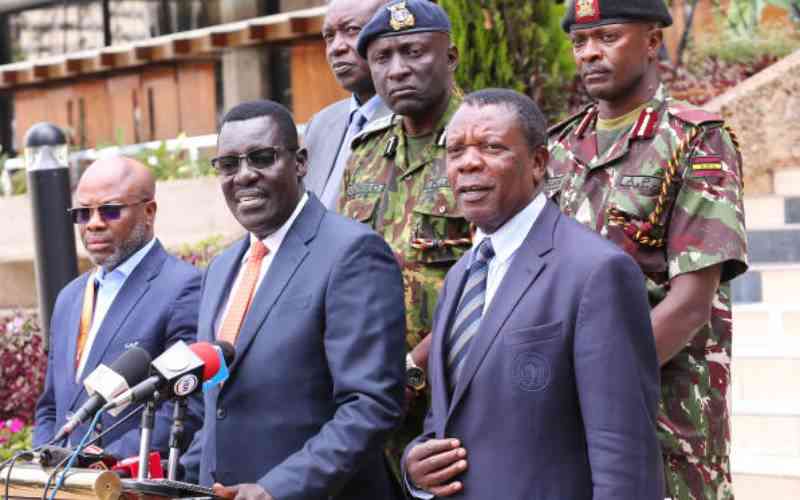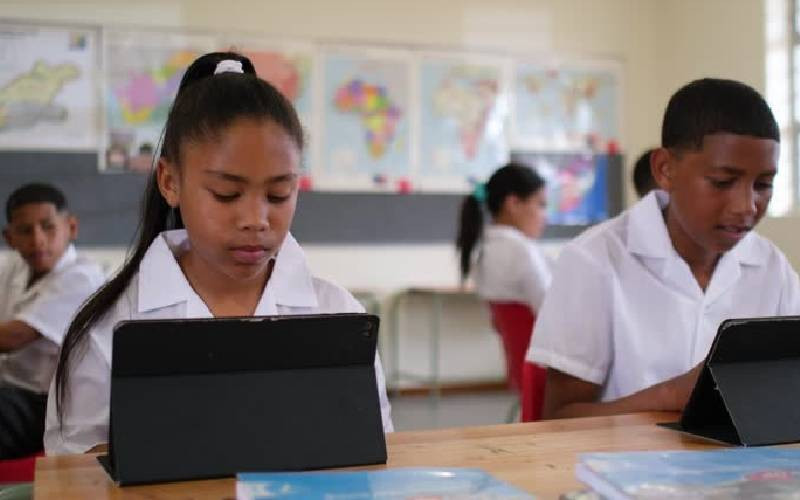
Brian Kinyanjui, a 10-year-old boy living in Kajiado County, wants to go to high school and eventually study engineering at university. “I want to become the best engineer in Kenya to provide solutions in our community,” he said.
Every child around the world has the right to a quality primary education.
The benefits of education include better long-term health and economic outcomes, and better life choices, allowing individuals to break the cycle of inter-generational poverty.
Quality, safe, inclusive education also benefits society by improving general population health and livelihood outcomes, gender equality, and greater political participation and global citizenship. But greater investments in education are needed to take advantage of what it has to offer.
According to the 2021 Kenya Out-Of-School Children Initiative study, 1.13 million children of primary school age (6-13 years old) across the country are out of school.
A combination of barriers contribute to poor school enrolment including poverty, social and cultural norms affecting girls and boys, the absence of school meals, increasing teenage pregnancies, early marriage, nomadic lifestyles, child labour, disability, and children living in crisis.
The out of school challenge was further exacerbated by the global Covid-19 pandemic, which saw schools close, and many children not returning.
Prolonged drought followed by successive floods recently experienced in Kenya’s Arid and Semi-Arid counties forced families to leave their homelands in search of clean drinking water and pasture for their livestock.
The culmination of these crises caused an education catastrophe, leaving many school-aged children with significant learning loss, learning poverty or excluded from education altogether.
To improve access to education, the Ministry of Education, county administrations, Education Above All Foundation (EAA) and key education partners have been working to help children overcome barriers to education, contributing to Kenya’s efforts to reach SDG 4 on ensuring inclusive and equitable access to quality education opportunities for all.
One of the main programmes supporting these efforts is the “Operation Come-to-School,” which was implemented by UNICEF in partnership with EAA, the Government of Kenya and NGO partners.
Phase One of the Operation Come-to-School programme ran between 2015-2020 and Phase Two from 2021-2023. Through this partnership, 605,628 out-of-school children have been enrolled in schools throughout Kenya. This comprises 322,149 boys and 283,479 girls, demonstrating our shared commitment to expanding educational opportunities for all children.
During the two phases, the programme made significant strides in enhancing education in 18 counties, including 15 arid and semi-arid lands counties as well as, Mombasa, Bungoma and urban informal settlements in Nairobi.
In total, over 408,808 learners have gained life skills, mentorship and psychosocial support. While more than 1.4 million children benefited from improved teaching materials, an impressive 89 per cent of children supported by the programme have stayed in school.
The programme has also improved learning environments through the refurbishment of 318 classrooms. Some 275 gender sensitive latrines were refurbished and 71 new latrines being built. 374 handwashing stands have been installed and hygiene promoted through school health clubs showing the importance of hand-washing practices and techniques. Additionally, 84.7 per cent of trained teachers are now using effective teaching methods.
Policy development has been a key focus, with the finalisation of the Nomadic Education Policy and the creation of a draft bill to enable the participation of all children in quality education in Garissa County.
A comprehensive assessment report supports curriculum development in this area. Furthermore, the integration of a Digital Attendance Application into the National Education Management Information System has enhanced data management across 90 per cent of targeted schools, aiding strategic planning and resource allocation.
As a result of joint advocacy, a multi-faceted approach was implemented to improve education. This included establishing diverse education pathways, strengthening formal education systems, and delivering an Accelerated Education Programme.
Additionally, guidelines for non-formal education were developed, teacher shortages in ASAL counties were addressed, and operational guidelines for integrating all children into the national system were created.
Whilst we take a moment to celebrate all that has been achieved through the Operation Come-to-School programme, there is more to be done to ensure that every child has the opportunity to receive a quality primary education. Increased and equitable investment in education is critical.
We need improved and periodic data, monitoring of out-of-school children and those at-risk of dropout, and we build resilience of schools, education systems and communities.
Developing targeted interventions, including upgrading the quality and quantity of education facilities, expanding coverage of school meals and developing school-based strategies to re-engage and support newly enrolled out-of-school children, particularly girls and nomadic groups, is crucial for reintegration and retention.
This year, designated as “The Year of Education in Africa,” presents a unique opportunity to advance educational progress and tackle persistent challenges outlined in the Continental Education Strategy for Africa and Sustainable Development Goal 4.
As we focus on addressing out-of-school children, learning poverty, and teacher shortages, increased and equitable investment alongside strong partnerships is crucial for the future of education and for our children.
Ms Nilofer is a Representative, UNICEF Kenya. Dr Pigozzi is Executive Director, Educate A Child, Education Above All Foundation
 The Standard Group Plc is a multi-media organization with investments in media
platforms spanning newspaper print operations, television, radio broadcasting,
digital and online services. The Standard Group is recognized as a leading
multi-media house in Kenya with a key influence in matters of national and
international interest.
The Standard Group Plc is a multi-media organization with investments in media
platforms spanning newspaper print operations, television, radio broadcasting,
digital and online services. The Standard Group is recognized as a leading
multi-media house in Kenya with a key influence in matters of national and
international interest.
 The Standard Group Plc is a multi-media organization with investments in media
platforms spanning newspaper print operations, television, radio broadcasting,
digital and online services. The Standard Group is recognized as a leading
multi-media house in Kenya with a key influence in matters of national and
international interest.
The Standard Group Plc is a multi-media organization with investments in media
platforms spanning newspaper print operations, television, radio broadcasting,
digital and online services. The Standard Group is recognized as a leading
multi-media house in Kenya with a key influence in matters of national and
international interest.


